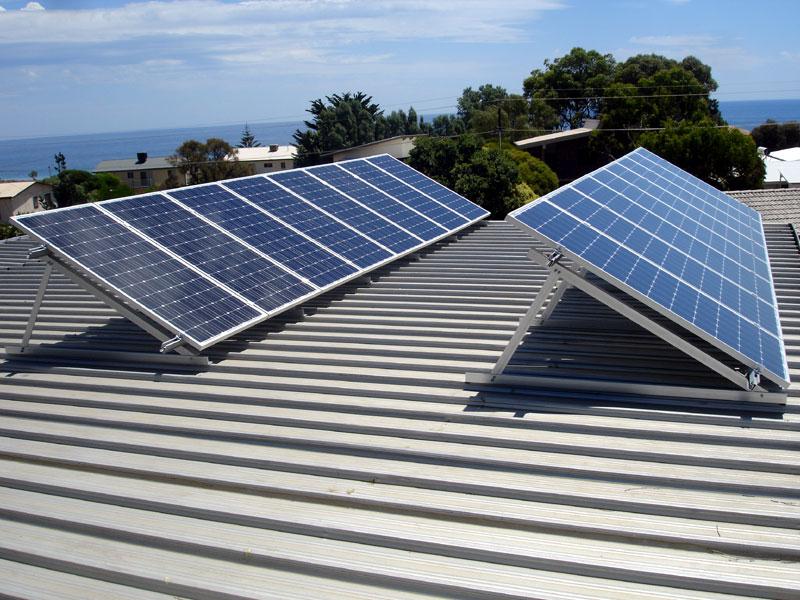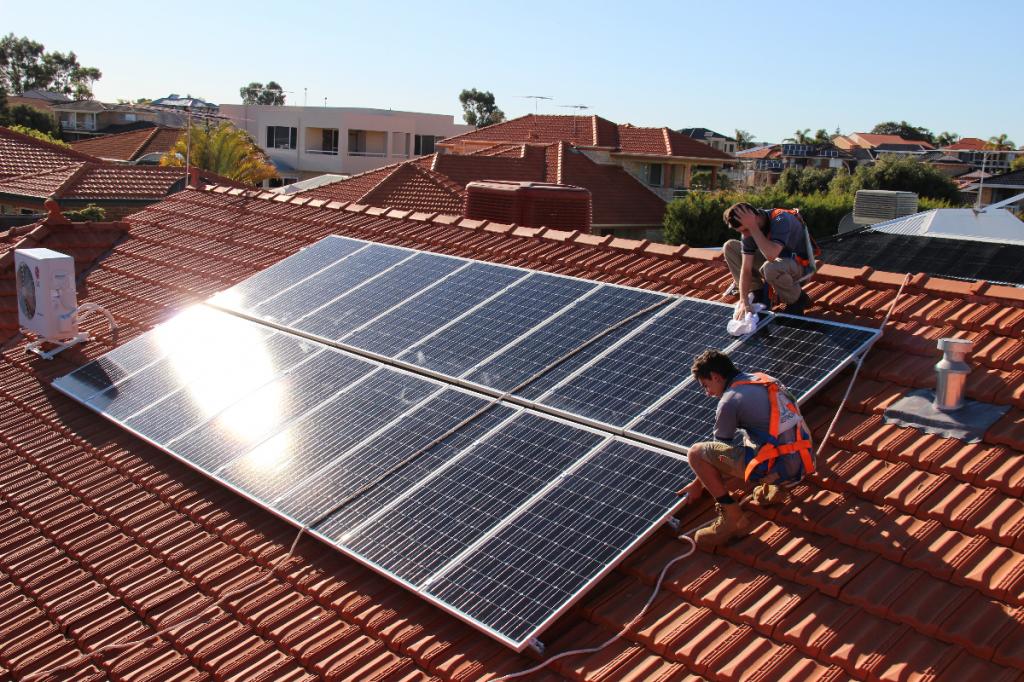Do I Install Solar Panels
Last Updated Nov 16, 2015 · Written by Rob Schneider
Today’s solar panels are cheaper and more efficient than ever before, so there has never been a better time to go solar. Lower cost and greater efficiency translates to a much faster payback period than in the past. Installing solar panels is commonplace today and households across Australia that have installed solar panels are already reaping the benefits of lower energy bills.

Going Solar: What You Need to Know
Solar power is a complex subject, but as a consumer, you only need some basic facts to understand how it works and why you should install solar panels. Basically, roof or ground-mounted solar panels collect energy from the sun. The energy is transferred to an inverter, which converts the energy into useable electricity. The addition of a storage battery allows you to use excess electricity at night. In addition, in some areas, you can transfer energy you don’t need to the electricity grid. The amount of energy you produce will be monitored and you receive a further deduction from your grid electricity bill.

Solar panels are more efficient than they were in the past. This means that you get more energy from a single solar panel than you could have in the past. The positioning of solar panels is still important because they need to face the sun for as many hours as possible to collect the maximum amount of energy, but even on cloudy days, modern solar panels can collect energy efficiently.
Choosing a Solar Power System
Solar systems are rated by the amount of electricity they can produce. A system can be as small as 1 kilowatt (kW) or as large as 100kW. A 1kW system is too small for the average household, but 100kW is far more than you will need. In a temperate climate like Sydney’s, a 5kW system coupled with a 15 kilowatt hour (kWh) storage battery can provide most of an average family’s electricity in summer and even more in winter, when you’re not using air conditioning.
When choosing a solar power system, you do want to compare prices, but the initial price of a system is less important than the payback period. The payback period is the length of time it takes for a system to fully pay for itself in energy savings. The payback period for a solar installation in Brisbane will be different than the payback period in Melbourne because of the amount of available sunlight. Fortunately, you don’t have to do your own calculations, though. Most solar panel installers can provide you with calculations for your area or you can use an online calculator.

Even a modest solar panel system can save you up to 60 percent on your electricity bill. A 2.6kW system for a small house in Sydney or Melbourne, for example, can reduce quarterly bills by between $150 and $200. To find your payback period, you’ll need to know how much the system costs to install, but in general, payback periods have been reduced from nearly 10 years to under five years.
Getting the Most Out of Your Solar Power System
Naturally, you will want to achieve the shortest possible payback period. The way to do this is to have your solar system installed in an optimum location and get the right size system for your household. After your system is installed, find ways to reduce your electricity consumption, especially during the day, so you have power in your battery for use at night:
- Using less air conditioning can make a dramatic difference, so you might want to consider installing ceiling fans to cool your home.
- Shading windows with awnings will help keep the house cooler.
- You may want to consider replacing larger windows that face the sun with double glazed windows to reduce heat transference.
- Insulating your walls and ceiling will also reduce heat transference, keeping you home interior cooler in summer and warmer in winter.
- LED lighting uses far less electricity than conventional incandescent lighting.
- A solar hot water system will slash your hot water bill.
Armed with the right information, you can have solar power this summer and start saving now. Your system will pay for itself over time and over the course of your system’s lifetime, you’ll have extra money to spend on the things you want rather than spending it on your electricity bills.

